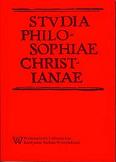Kwantowe modele poznania i decyzji
Quantum models of cognition and decision-making
Author(s): Andrzej ŁukasikSubject(s): Philosophy, Epistemology
Published by: Wydawnictwo Naukowe Uniwersytetu Kardynała Stefana Wyszyńskiego w Warszawie
Keywords: quantum mechanics; quantum cognition; decision theory; quantum probability
Summary/Abstract: Quantum mechanics introduces a new set of revolutionary principles, such as wave-particle duality, superposition, uncertainty, complementarity, entanglement, as well as a fundamentally new approach to probability. Quantum mechanics was created to explain some paradoxical discoveries that were impossible to understand using classical physics. Nowadays we have a similar problem in cognition and decision making – there are many paradoxical findings that seem irrational according to classical probability theory. For example, under some conditions, people judge the probability of event A and B to be greater that the probability of A, which is called the conjunction fallacy; or they judge the probability of A or B to be less than the probability of A, which is called the disjunction fallacy.The aim of this article is to describe the Quantum Cognition research program, which applies the abstract, mathematical formalism of quantum mechanics to cognition and decision making. Quantum probability theory, initially invented to explain some effects on measurements in physics, appears to be a powerful tool to explain some findings in the cognitive sciences.
Journal: Studia Philosophiae Christianae
- Issue Year: 52/2016
- Issue No: 4
- Page Range: 107-130
- Page Count: 24
- Language: Polish

